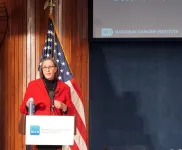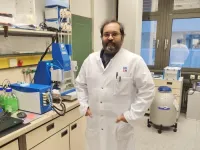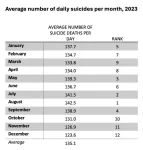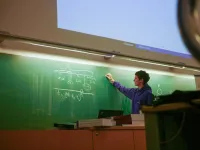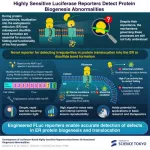How do marine food webs respond to increasing alkalinity?
First study shows promising results
2024-12-06
(Press-News.org)
The ocean naturally absorbs a quarter to a third of man-made CO2 emissions, but this process also leads to the acidification of seawater. By increasing the alkalinity of seawater through the addition of certain minerals (e.g., carbonates and silicates), the ocean can chemically bind more CO2 without further acidification. However, there is still little research on the environmental effects of Ocean Alkalinity Enhancement (OAE). Scientists from Prof. Ulf Riebesell´s group at GEOMAR Helmholtz Centre for Ocean Research Kiel, as part of the European oceanNETs project, have now investigated the response of zooplankton and potential impacts on the food web for the first time in an experiment conducted off Gran Canaria. The results of their study are published today in the journal Science Advances.
Experimenting in giant test tubes
The study adopted an approach with moderate perturbations to seawater chemistry: CO₂-equilibrated Ocean Alkalinity Enhancement. With this approach, the alkalised water that has already absorbed CO2 intended for carbon dioxide removal (CDR) before being released to the marine environment. For their experiment, the scientists used KOSMOS mesocosms (Kiel Off-Shore Mesocosms for Ocean Simulations) - large test tubes that are lowered directly into the seawater, isolating eight cubic metres of the water column.
Different concentrations of sodium carbonate and bicarbonate were added to achieve varying intensities of CO2-equilibrated OAE, ranging from no increase in alkalinity to a doubling of natural alkalinity. Over a period of 33 days, the researchers monitored the effects of alkalinisation on zooplankton, which plays a key role in transferring energy through the food web up to fish. A range of responses were studied in the zooplankton, from biomass and production to diversity and fatty acids.
Overall, researchers found that the plankton communities remained stable and that the zooplankton largely tolerated the moderate chemical changes associated with CO2-equilibrated OAE. During the experiment, the nutritional quality of the particulate matter on which zooplankton can feed potentially deteriorated, but this did not seem to affect the consumers. The researches argue that food limitation, a result of the oligotrophic conditions under which this experiment took place, and which characterize subtropical waters, could have buffered these possible indirect responses of zooplankton to OAE.
“Our study shows that the increase in alkalinity has minor impacts on the zooplankton and that the food web as a whole remains stable,” says Nicolás Sánchez, PhD student and first author of the study.
Potential in climate protection and need for further research
Ocean Alkalinity Enhancement could become an important ally in reducing CO2 emissions to combat climate change. By enabling the ocean to absorb more CO2 without becoming more acidic, this approach could strengthen the ocean’s role as a buffer against global warming. It could help bridge the transition to a future where fossil fuels are replaced by renewables, emissions from industries that cannot be decarbonized are neutralised, and historical carbon emissions are safely removed and stored. However, extensive research is urgently needed in order to determine the impact of OAE on the whole marine environment.
“Our experiment has shown that CO2-equilibrated OAE does not have a lasting impact on zooplankton and the food web in the nutrient-poor subtropical area we studied,” says Nicolás Sánchez, “but this does not say anything about how it will affect other marine environments, nor about the safety of other, technically more feasible forms of OAE that cause greater changes to seawater chemistry”.
The scientists recommend further research on the method and across different ecosystems, as there will not be a single OAE approach that can be applied everywhere. Sánchez: “Our study is a promising first step towards defining a responsible framework for the application of alkalinity enhancement”.
END
ELSE PRESS RELEASES FROM THIS DATE:
2024-12-06
WASHINGTON, D.C. [December 6, 2024] — The National Comprehensive Cancer Network® (NCCN®)—a non-profit alliance of leading cancer centers—hosted a Patient Advocacy Summit in Washington, D.C., today. The annual event brings together leading experts to promote strategies and best practices for improving cancer care. This year’s summit focused on practice and policy solutions for sharing accurate, evidence-based health information with patients and caregivers. It featured a keynote address from W. Kimryn Rathmell, MD, PhD, MMHC, Director of the National Cancer Institute (NCI), along with panel discussions that included Robin Vanderpool, DrPH, Chief of the ...
2024-12-06
Globally, approximately 58 million people are chronically infected with HCV, resulting in 290,000 annual deaths due to complications such as liver cirrhosis and liver cancer. Although modern antiviral treatments achieve high cure rates, the global elimination of HCV remains a difficult goal due to inadequate early detection and limited treatment options. Indeed, HCV has been identified as one of the globally prioritized endemic pathogens for vaccine research and development in the World Health Organization's “Immunization Agenda 2030.” It ...
2024-12-06
As in most years that we’ve followed news reporting about the myth that suicides peak during the end-of-year holidays, an analysis of the past year showed again that more newspaper accounts supported the false idea that the suicide rate increases during the holiday season than debunked it.
Over the past 25 years that we have been studying this phenomenon, in just over a third (nine years or 36%) have we found more debunking of the myth than support for it. Despite years of debunking by mental health researchers, journalists, and others, ...
2024-12-06
In the journal “Science Translational Medicine”, scientists from DZNE and LMU Hospital report on new insights into the mechanisms of “Niemann-Pick type C” (NPC), a rare neurodegenerative disease associated with dementia that can manifest as early as childhood. Their findings, based on studies in mice, cell cultures and patients, emphasize that neuroinflammation, which is mediated by the brain’s immune system, plays a crucial role in NPC. In addition, their research points ...
2024-12-06
Helping out your neighbor or minding your own business? A challenging choice with different benefits for each decision. Game theory provides guidance in making such choices—from a theoretical perspective. Novel findings by Jakub Svoboda and Krishnendu Chatterjee at the Institute of Science and Technology Austria (ISTA) reveal new network structures that enhance cooperation throughout a system. These insights have potential applications also in biology.
The question of cooperation has puzzled scientists for a long time. Whether it is in the fields of biology, sociology, ...
2024-12-06
Deciding where to build new solar or wind installations is often left up to individual developers or utilities, with limited overall coordination. But a new study shows that regional-level planning using fine-grained weather data, information about energy use, and energy system modeling can make a big difference in the design of such renewable power installations. This also leads to more efficient and economically viable operations.
The findings show the benefits of coordinating the siting of solar farms, wind farms, and storage ...
2024-12-06
About The Study: In this cross-sectional study of 52,000 participants representing 264 million U.S. adults, population-level improvements in total cholesterol and triglyceride levels decelerated and adverse trends in glucose levels accelerated in more recent birth cohorts, which was partially mediated by concurrent increases in body mass index. Public health initiatives that target antecedent health behaviors are needed to improve cardiometabolic health across generations.
Corresponding Author: To contact the corresponding author, Xiaoning Huang, PhD, email jack.huang@northwestern.edu.
To access the embargoed study: Visit our For The Media ...
2024-12-06
Desert ants of the Cataglyphis nodus species use the Earth's magnetic field for spatial orientation, but these tiny insects rely on a different component of the field than other insects, a research team led by Dr Pauline Fleischmann from the University of Oldenburg, Germany, reports in the journal Current Biology. As the team explains in its paper, this suggests that they also use a different mechanism for magnetoreception than most insects studied to date, including, for example, the famous monarch butterflies. The researchers suspect that magnetoreception in these desert ants is based on a mechanism involving ...
2024-12-06
In eukaryotic cells—found in animals, plants, and fungi—protein synthesis involves more than the simple assembly of amino acids in ribosomes. Nearly one-third of all human proteins must be transported to the endoplasmic reticulum (ER) during or shortly after their synthesis. In the ER, these proteins undergo crucial folding and modifications, including the formation of disulfide (S–S) bonds, which are vital for their structure and function.
Disruptions in protein translocation to the ER or disulfide bond formation underlie several diseases, and understanding the mechanisms that govern these processes is essential in biology and medical ...
2024-12-06
We are thrilled to announce that our esteemed academic journal, Communications in Transportation Research (COMMTR), has been officially included in both the Science Citation Index Expanded (SCIE) and the Social Sciences Citation Index (SSCI) by Web of Science, a leading global provider of scientific and scholarly research information.
In the Journal Citation Reports (JCR) released in June 2024, COMMTR received its first Impact Factor of 12.5, ranking it 1st among 58 journals in the TRANSPORTATION category and 3rd among 72 journals in the TRANSPORTATION SCIENCE & TECHNOLOGY category. The dual inclusion in SCIE and SSCI signifies that the journal has ...
LAST 30 PRESS RELEASES:
[Press-News.org] How do marine food webs respond to increasing alkalinity?
First study shows promising results
